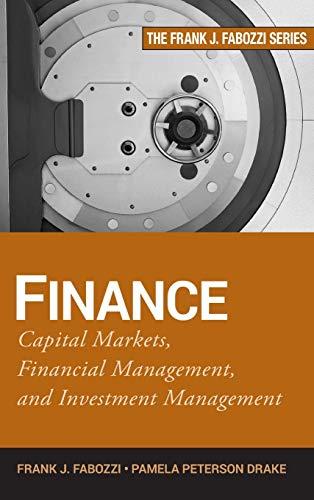Willy Wise participates in his employer's 401(k) retirement plan and contributes $4000 in the course of the year out of his $60,000 income. (His employer matches Willy's contribution dollar for dollar.) Willy's contributions are tax deductible (i.e., deducted from his taxable income) and he is in the 25% federal income tax bracket. How much less does Willy pay in federal income taxes that year compared to a co-worker who makes the same salary but does not participate in the 401(k) plan?
Flag this Question
Question 372 pts
Imagine that stock in Company XYZ is selling for $40 per share. There are a million shares of stock, and Company XYZ made $2 million in profits last year. What is its P/E ratio?
Flag this Question
Question 382 pts
Last year, you purchased a 20-year bond from a snack food company -- let's call it Couch Potato -- with a face value of $1000 and an interest rate of 6% per year. This year, new bonds sold by other snack food companies with similar risk characteristics to Couch Potato are currently offering only 4% interest per year. What will be the approximate value at which you could sell your Couch Potato bond today? (This is a concept question; you should be able to estimate the answer without doing the exact calculation.)
Flag this Question
Question 392 pts
Nathan buys several shares of ABC Corp. stock for $60 each. At the end of one year, the stock price has risen to $66. Plus he was paid a dividend of $3 per share. What is the approximate rate of return (or yield) on this investment for the year. (You can ignore any commissions or taxes.) Remember: the rate of return is the total return as a percentage of your initial investment.
Flag this Question
Question 402 pts
Think of a $1,000 bond with a 6% ($60) coupon that matures several years into the future. If you manage to buy it for $850, the bond's CURRENT yield is approximately:






